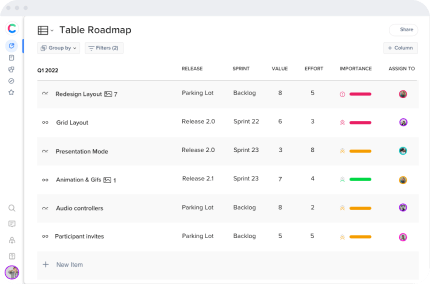What is business to business?
Business-to-Business (B2B) refers to traction or a business performance between one company to another. Business-to-Business will commonly occur in the supply chain, in which a business will buy materials or services from another company to reach business goals.
B2B transactions occur between two businesses instead of those between a company and an individual consumer (B2C).
Companies that collaborate with other businesses are defined as B2B. That said, B2B enterprises are not required to sell their products or services exclusively to other companies and can target consumers as well. Their methodology can accommodate business-to-consumer transactions, albeit these will be handled differently from a sales and marketing standpoint.
The value of business-to-business services or products is significantly higher than that of services or products sold to consumers. As a result of the increased risks associated with B2B transactions, the decision-making process can take anywhere from a few days to many months as it involves various parties (a buying group).
Business to Business vs. Business to Consumer
Making a sale to a company is not the same as purchasing a product from a private customer. Here are some of the differences between both sales:
- Business-to-Business includes, in some cases, some type of auction. Imagine that you, as a customer, walk into a restaurant, and the waitress asks you to bid your best offer for the meal you want to order.
- There is a massive difference in the time frame of a regular business-to-consumer deal to a Business-to-Business. The decision-making process can take a few days to even months before the actual perch.
- More than one person will most likely decide to buy a product in B2B. which means that the business needs to sell its product to more than one customer per deal.
In addition to technology and manufacturing, the business-to-business model is used in other industries such as vehicles, maintenance, SaaS, and others.
Because of the scope and diversity of the technology business, it encompasses a wide range of disciplines (both B2B and B2C).
As an illustration, consider the company Apple. In addition to its direct-to-consumer and business-to-business hardware and software sales, the company has relationships with several iPhone component manufacturers.
Software as a service (SaaS) can also be supplied through a business-to-business transactional model. SaaS programs such as Asana and Dropbox are more typically marketed as Business-to-Business solutions (although there is nothing preventing users from using these tools in their personal lives).
The Fundamentals of B2B Marketing
Developing a good Business-to-Business marketing strategy should include the following steps:
● Defining your audience
● Establishing authority
● Creating a solid content strategy
● Broadening your distribution channels, among other things
Social media, like business-to-consumer marketing, can be a fertile ground for business development. LinkedIn is particularly beneficial for businesses that operate in the business-to-business market segment.
Specific internet directories can be a valuable tool for raising knowledge about your products, connecting you with interested businesses on a more local level, and participating in trade exhibitions and industry conferences. Other strategies to consider including are the publication of trade periodicals.
In addition to standard marketing tactics, business-to-business enterprises must strongly emphasize developing relationships with their customers before making sales. B2B marketing relies heavily on the ability to network with other businesses.


